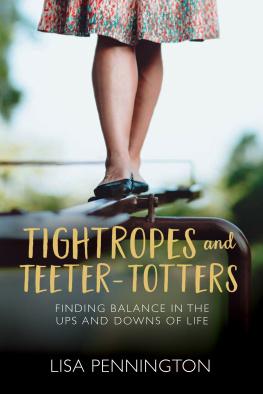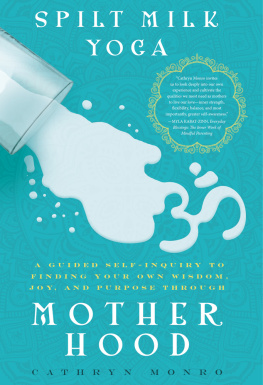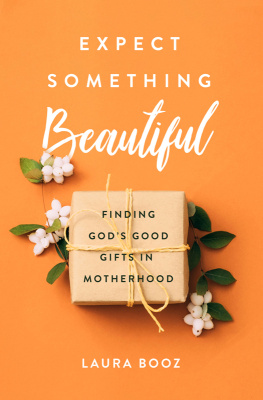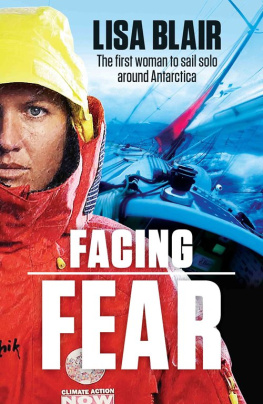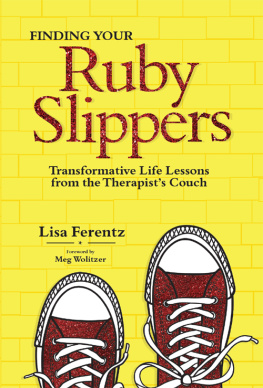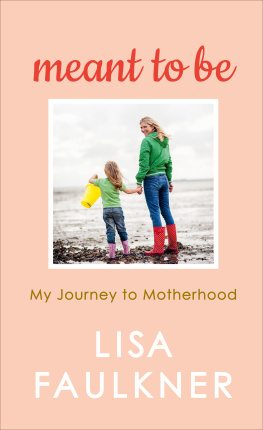Lisa Marchiano - Motherhood : facing and finding yourself
Here you can read online Lisa Marchiano - Motherhood : facing and finding yourself full text of the book (entire story) in english for free. Download pdf and epub, get meaning, cover and reviews about this ebook. year: 2021, genre: Science fiction. Description of the work, (preface) as well as reviews are available. Best literature library LitArk.com created for fans of good reading and offers a wide selection of genres:
Romance novel
Science fiction
Adventure
Detective
Science
History
Home and family
Prose
Art
Politics
Computer
Non-fiction
Religion
Business
Children
Humor
Choose a favorite category and find really read worthwhile books. Enjoy immersion in the world of imagination, feel the emotions of the characters or learn something new for yourself, make an fascinating discovery.

- Book:Motherhood : facing and finding yourself
- Author:
- Genre:
- Year:2021
- Rating:5 / 5
- Favourites:Add to favourites
- Your mark:
- 100
- 1
- 2
- 3
- 4
- 5
Motherhood : facing and finding yourself: summary, description and annotation
We offer to read an annotation, description, summary or preface (depends on what the author of the book "Motherhood : facing and finding yourself" wrote himself). If you haven't found the necessary information about the book — write in the comments, we will try to find it.
Motherhood : facing and finding yourself — read online for free the complete book (whole text) full work
Below is the text of the book, divided by pages. System saving the place of the last page read, allows you to conveniently read the book "Motherhood : facing and finding yourself" online for free, without having to search again every time where you left off. Put a bookmark, and you can go to the page where you finished reading at any time.
Font size:
Interval:
Bookmark:
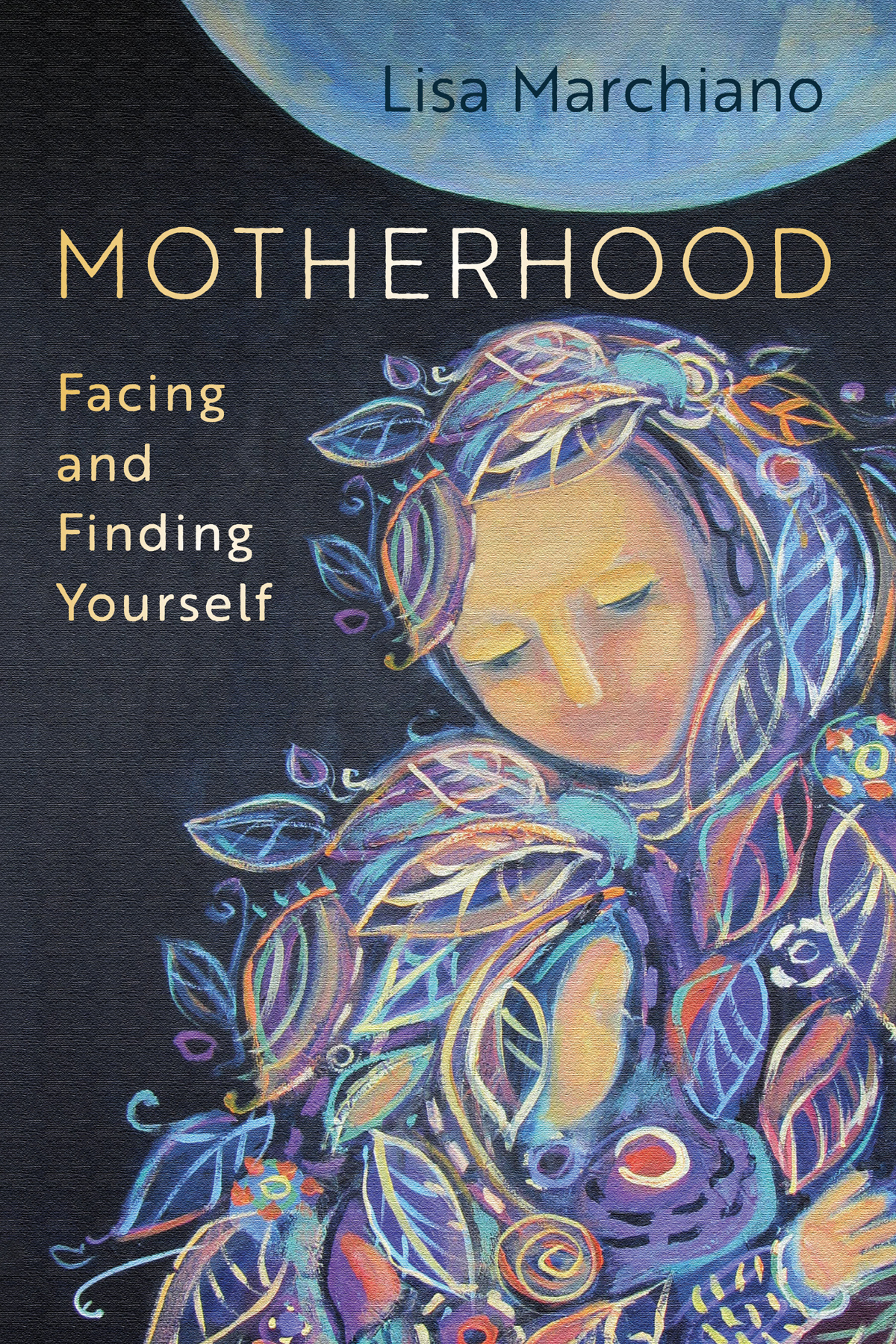

For my mother.
And my children.
DISCLAIMER
All clinical material shared in this book has been used with permission or is a composite rendering. Names and identifying details have been changed.
I always thought I didnt want children. In college, when a friend confessed a deep longing to become a mother, I couldnt relate. I had ambitious career plans, and being a mother sounded limiting and ordinary. After college, I worked for a nonprofit organization in Washington, DC. My work felt exciting, important, and meaningful. Deep down, I knew there were many things I needed to do in my life, and I feared that having children would prevent me from fulfilling my potential.
Bestselling author and psychologist James Hillman proposed what he called the acorn theory of psychological development. writes mythologist and author Michael Meade. As a young woman, I wanted badly to find what was waiting to be awakened. I was afraid that becoming a mother would fatally interrupt its unfolding.
My mother had been frustrated with her role. Though I always felt loved by her, she would at times rail about how limited she had allowed her life to become. Dont ever have children! she would shout at us when she felt particularly downtroddenwhich was often. I grew up to have ambivalent feelings about motherhood.
Time and age softened my conviction to avoid becoming a mother. Eventually I learned that the conscious part of my personality did not, in fact, have all the answers. At twenty-eight, I was studying international relations in New York. I planned to go to law school next, so that I would be equipped to continue my exciting work with international nonprofits. But some deeper part of myself had other plans. Upon arriving in New York, I began having dream after dream set in the subway. These subterranean dream images mirrored a psychic descent. In spite of my efforts to avoid doing so, I was falling into a depression. The work that had heretofore given my life a sense of purpose and meaning now seemed empty. No matter how I threw myself into graduate school and other aspects of my life, I felt increasingly isolated, sad, and tearful. I was being dragged into the depths against my will.
Though I was terrified of such a descent, by early spring I had been led by my dreams to become curious about what was happening to me. I began writing down my dreams each night and reading books by Jungian authors. These books introduced me to a different way of relating to my unhappiness. They helped me see my suffering and symptoms as an invitation to discover more about myself, and I was gripped by what I was learning.
Carl Jung (18751961) was a Swiss psychiatrist and one of the great explorers of the soul. Jung identified several drives but posited that the overarching one was an innate desire to realize ones potential. While he agreed that the unconscious contained elements that were repressed or forgotten, he also felt that the unconscious could be the source of tremendous creativity and growth. He held that we are all connected to a common source of image and meaning through our access to the deep unconscious with its storehouse of universal, archetypal patterns of human experience. In the midst of my depression and confusion, Jungs ideas were a healing balm. My dark and lonely passage became suffused with meaning and purpose.
The depression was a major seismic event that altered the flow of my life energy and shifted its course. I yielded to the urges and instincts that welled up from within. With hindsight, it is clear that my dark night of the soul in New York that year was my inborn destinymy acorntrying to grow. Within a few years, I set aside my plans to study law and began the long road to becoming a Jungian analyst.
Around this time, I met and married my husband. He had a deep longing to have children, and I had become wise enough to know how to yield to what life offered. Two years after our wedding, I became a mother. To my surprise, the first year of my daughters life was filled with great fulfillment and joy. After the first few difficult and exhausting months, she and I settled into a wonderful rhythm. I adored everything about caring for her. As if having this beautiful, perfect baby werent enough, I began my training to become a Jungian analyst just after my daughter turned one. I would push her stroller around the neighborhood, a heavy volume of Jungs Collected Works weighing down the diaper bag so that I could sit on a bench and read when she fell asleep. I felt completely whole and content.
But this contentment was short lived. A few months after my daughter turned one, I became pregnant with our second child. The new pregnancy brought with it more exhaustionand more anxiety. I worried constantly about how the next babys arrival would affect my lifemy work, my analytic training, and my relationship with my daughter.
My son was born a week before my daughters second birthday. Caring for a toddler and a newborn was draining, and I found myself overwhelmed, exhausted, and depressed. Though I continued to see a small number of patients in my private practice, I was forced to take a leave from my Jungian training program, leaving me feeling adrift, without the sense that I was moving forward in my life professionally. I weighed more than I ever had in my life, and I had no time to exercise or eat thoughtfully. The physical exertion, the third straight year of sleep deprivation, the lack of any time to inhabit my thoughts and inner life, and the sheer impossibility of meeting the demands of an infant and a toddler left me feeling depleted, tearful, and incompetent. With two little kids, I felt as though I were losing myself, getting sucked into the mire.
One cold December day, having gone for a walk just to get out of the house, I struggled to push the kids uphill in the double stroller. Everything about being a mother is so hard, I thought to myself. My next thought surprised me: Im growing so much as a result. What is happening to me right now must surely be an opportunity to understand myself better.
It has been over fifteen years since that thought first struck me, and my babies have grown into teenagers. Along the way, it has not ever ceased to be true that parenting is gut-wrenchingly difficult and always offers new insights about myself, if I care to see them. I have learned from my parenting experiences, and I have also been privileged to witness the parenting journeys of mothers in my practicesome of them becoming mothers for the first time, others managing a relationship with their adult child, and everything in between.
Motherhood, with its intense physical and emotional extremes, is a crucible in which we are tested and altered. In the alchemical vessel of motherhood, the heat is turned up high. Outdated parts of our personality are melted away, and new structures are forged. Motherhood is a dizzying high-wire act, a masquerade, and a communion with mortality. It is a falling from and finding of grace, a falling in and out of love, and heartache by the hour. Motherhood is the ultimate confrontation with yourself. Whatever is there to discover at the bottom of your soul, whether dross or treasure, motherhood will help you find it.
One of Jungs most important ideas is that we continue to grow and develop throughout the course of our lives. According to Jung, we never stop growing and changing. In fact, as we age, we have more opportunity to become ourselvesto tend to the unfolding of our unique blueprints, to grow into the oak trees we came into the world with the potential to be. Jung called this lifelong maturation individuation.
Font size:
Interval:
Bookmark:
Similar books «Motherhood : facing and finding yourself»
Look at similar books to Motherhood : facing and finding yourself. We have selected literature similar in name and meaning in the hope of providing readers with more options to find new, interesting, not yet read works.
Discussion, reviews of the book Motherhood : facing and finding yourself and just readers' own opinions. Leave your comments, write what you think about the work, its meaning or the main characters. Specify what exactly you liked and what you didn't like, and why you think so.

